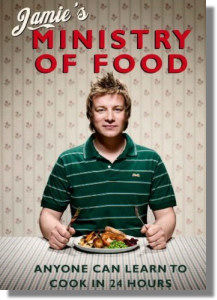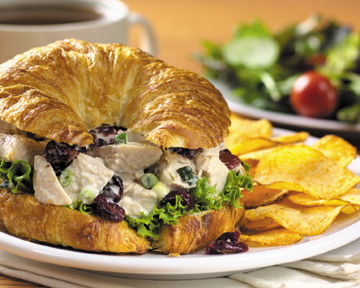Food to many is an evangelical calling.
Some find faith in monotheism, some in nature, some in the sports shrine (I prefer ice hockey, especially now that the playoffs have started and the cathedral once known as Maple-Leaf-Gardens-whatever-the-corporate-home-of-Toronto’s-disgrace-is-now is out of the theological debate), and some in the kitchen.
 For some faiths, like creationism, biology don’t matter much.
For some faiths, like creationism, biology don’t matter much.
So the headline in today’s St. Louis Post-Dispatch, harking to centuries of food hucksterism, is not surprising: “Illnesses don’t dissuade raw milk fans.”
“Raw milk enthusiasts say an E. coli outbreak in Missouri won’t change their preference for unpasteurized dairy products.
“At least nine people in five counties in central and western Missouri have been sickened by E. coli since late March. Health officials have pointed to raw milk as a possible cause in at least four of the cases, including a 2-year-old from Columbia who remains hospitalized with severe complications.
“MooGrass Farms near Collinsville sells about 200 gallons of raw cow, goat and sheep milk each week, mostly to families from the St. Louis area, said the farm’s manager, Kevin Kosiek.
“His customers appreciate the taste of whole raw milk as well as the lack of heat processing that kills some of the nutrients.
"This is not a fad," Kosiek said. "People are going back to where people used to get their food, and that’s farmers doing natural, organic things."
“Kosiek and several other raw milk distributors said they doubt the E. coli outbreak will be ultimately linked to unpasteurized dairy products.”
Faith and biology don’t have to conflict. Facts are important, but never enough. It’s a religious thing.
A table of raw milk related outbreaks is available at: http://bites.ksu.edu/rawmilk.

.jpeg) infection; a 17-month-old has also developed life-threatening complications affecting the kidneys. The other patients are all adults, health officials said.
infection; a 17-month-old has also developed life-threatening complications affecting the kidneys. The other patients are all adults, health officials said..jpg) gender of the victims.
gender of the victims.
 patted the two halves back together when finished and he pushed the spewing excess back into the seams. He set the creation into a to-go box, piled a few potato chips on top (again bare handed), and got a pickle from somewhere (it wasn’t from a jar). He served it with a kind-of-a-smile that I hope does not cost me in the future.
patted the two halves back together when finished and he pushed the spewing excess back into the seams. He set the creation into a to-go box, piled a few potato chips on top (again bare handed), and got a pickle from somewhere (it wasn’t from a jar). He served it with a kind-of-a-smile that I hope does not cost me in the future. “We have two confirmed cases of E. coli O157:H7 in Jasper County. One of the cases resulted in a death.”
“We have two confirmed cases of E. coli O157:H7 in Jasper County. One of the cases resulted in a death.”